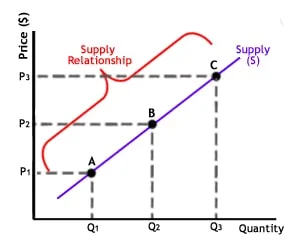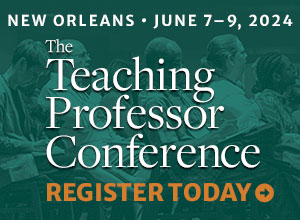

Best Preparation Tips for Short Answer Tests
Most tests contain at least a few short answer questions. The following are proven study and test preparation strategies that will help improve your performance on short answer/essay questions and tests.
Best Short Answer Test Preparation Tips and Strategies
Study for understanding.
Teachers, professors and instructors typically give short answer and/or essay tests to see how well students have grasped course concepts, their meanings and significance. This has both pros and cons with respect to test preparation and performance.
The con is that you can’t just just memorize information and expect to do well on a short answer test – you must understand course material and concepts.
The pro is that even if you can’t remember a specific term, as long as you have a general understanding of the concept in question, you can still develop an answer that is likely to get you full or partial credit.
When preparing for short answer tests focus on understanding rather than memorization of facts.
Focus on topics and concepts
As with all types of test questions, the best way to prepare is by studying and becoming intimately familiar with course content, concepts and material. During lectures, try to decipher what types of topics and concepts will be covered on the test by looking for hints provided by the professor.
While it’s still important to memorize facts and information, try and do so within the framework of important topics that are being explored and concepts that are being taught.
Employ self testing
Make a guess as to what types of concepts will be covered on a test and create some practice questions to prepare yourself for the test. If accessible, study from previous class tests.
Use flashcards
Many students benefit by creating flashcards. On one side of a card, write definitions or other facts, and on the opposite side, write the definition.
If in doubt, make an educated guess
If you are completely unsure about a question, make an educated guess since there is usually no penalty for doing so. Show your work because teachers often provide partial credit if work is shown. Make sure the work you show is accurate.
Answer the easy questions first
When encountering confusing questions, move on to easier ones. Return to tackle more challenging questions once you’ve answered all the questions for which you know the answer. In some cases, you can decipher clues to answers for difficult questions from questions you’ve already answered.
Read all instructions
It’s critical to carefully read instructions for each short answer question. What exactly is the question asking you? Often short answer questions will ask you to describe, list, compare, contrast, identify, analyze, summarize, or a combination of these. If you describe when you’re supposed to compare, or summarize when you’ve been instructed to analyze, your test performance is going to decrease.
Budget your time
With short answer/essay tests it’s easy to lose track of time. At the beginning of the test check to see how many questions on the test and if the test is divided up into sections. Make sure to allocate a specific amount of time per section and per question.
You don’t want to get halfway through the test and realize you only have a few minutes left. Some short answer questions may be worth substantially more than others. Make sure to allocate time to those questions that are worth the most.
Reread each question
Always reread the question after answering it. It’s not uncommon for a short answer question to have multiple parts. For example: “Compare and contrast Frye’s and Bartky’s accounts of social oppression with respect to gender inequality. List the differences in their views.” Answering only part of the short answer question will likely result in only partial credit.
Ask for clarification
If you don’t understand a question or find it is a bit confusing, ask your instructor for clarification. Don’t be scared to ask. Chances are there are several other students who are struggling to understand it as well.
Be thorough. But be concise
While opinions may differ, most teachers believe a short answer question typically requires a “short” answer. That doesn’t mean an answer lacking depth analysis or information. It simply means an answer that is concise and includes just enough information to accurately and fully answer the question being asked.
Typically an answer that’s longer than necessary isn’t going to cause you to lose points, as long as your information is correct. However, if you include incorrect information in your short answer, you’ll likely lose points.
The 6 Basic Types of Short-answer Questions
There are six basic types of short-answer questions. Understanding each will improve your performance on short-answer quizzes, tests and exams. When answering short-answer questions, make sure the format and type of answer you provide matches the type of question being asked.
1. Definition questions
Definition questions require you to define a concept.
- Question: “What is a supply curve?”
- Answer: “A supply curve shows the relationship between the price of a good or service and the quantity supplied. Typically, the price appears on the left vertical axis and the quality supplied on the horizontal axis.”
2. Explanation questions
Explanation questions require you to explain why something is true or how something functions.
- Question: “Why is the supply curve upward-sloping for most goods and services?”
- Answer: “The supply curve is upward-sloping because as the price the market pays increases for goods and services the volume that suppliers are willing to produce increases.”
3. Example questions
Example questions simply require a specific real-world example of a concept or phenomenon.
- Question: “Provide two examples of pairs of goods that are substitutes.”
- Answer: “Margarine and butter, and tea and coffee are examples of pairs of goods that are substitutes.”
4. Relationship questions
Relationship questions require you to state or show how two or more things relate to one another. Are they complementary? Are they the same? Are they different? Are they opposites? How does the existence of one affect the other? Etc. Relationship questions can be a bit more challenging than other types of short answers but are very doable if you’re prepared.
- Question: “In a competitive market, what is the relationship between supply and demand?”
- Answer: “Demand refers to the quality of a good or service consumers are willing to buy at a given price. Supply represents the quantity of a good supplied by producers at various prices. The price resulting from where supply and demand meet is referred to as the equilibrium price.”
5. Calculation questions
As the name suggests, calculations questions require you to calculate or compute a numerical answer or response.
- Question: “If the demand for used motorcycle purchases in the United States is represented by P = 1000 – .2Q and the supply of used motorcycles is represented by P = 400 + .2Q what is the market equilibrium price and quantity?”
- Answer: “The market equilibrium price (P) is 700. The market equilibrium quantity (Q) is 1,500.”
6. Graphing questions
Graphing questions typically require an answer in the form of a graph.
- Question: “Draw a diagram of a supply curve that shows the relationship between quantity supplied and price.”
- The answer is shown below.

Short-answer versus Short Essay Questions
Students often confuse short-answer questions with short essay questions. While these two question forms share some common characteristics, they are different. The following are the differences between short answer questions and essay questions that students need to know for test taking.
- Short Answer: Someone who assigned the material (teacher, professor, etc.) who has an expert level of the information.
- Short Essay: Someone who has never read or seen the assigned material or topic.
Level of expertise
- Short Answer: Assumes that the reader of the answer is an expert. The reader of the short answer is checking the knowledge of the author of the answer against a specific standard.
- Short Essay: Assumes the reader is not familiar or educated on the topic being addressed. As part of the essay an overview should be provided.
Length of answer
- Short Answer: Typically, very short–no more than 3 to 4 sentences. The more concise the better.
- Short Essay: Answer may vary in length, but ranges from 200-800 words or more.
- Short Answer: Typically comes from a very narrow arena of fact-based knowledge. Details and examples provided in answers are usually limited to assigned/required readings.
- Short Essay: Even though the short essay typically focuses on one specific issue or topic, the information presented in the essay may come from a variety of sources.
Answer format
- Short Answer: The answer format for a short answer will usually be a single sentence or paragraph. Short answers are concise and word selection is important to maximize effect.
- Short Essay: The answer format for short essays, unlike short answers, includes at minimum three paragraphs: the introduction; the body; and the conclusion. The introduction provides a general overview. The body provides the detail of the essay and varies from 1-8 paragraphs (200-800+ words). The conclusion is the wrap-up of the essay and reiterates the main points being communicated. It may also suggest an action.
Similar Posts:
- Guide on College and University Admissions
- 25 Tips For Improving Student’s Performance Via Private Conversations
- 68 Best Chemistry Experiments: Learn About Chemical Reactions
Leave a Comment Cancel reply
Save my name and email in this browser for the next time I comment.
Studying & Test Taking

- Introduction
- What to Study?
- Create a Study Space
- Build Healthy Habits
- Practice Tests
- Mnemonic Devices
- Essay Outlining
- Study Groups
- Preparing for Tests & Exams
- Multiple Choice
Short Answer
- Coping with Test Anxiety
- Feedback Form
- Co-Curricular Recognition Form
- Faculty Resources
Short Answer questions can be difficult for students. While not as lengthy as an essay question, you are still expected to cover enough material in the question to get full marks.
Unlike multiple choice and true/false questions, short answer questions have no possible answers written down for you—you have to recall and summarize ideas in your own words.
Despite the added difficulty, there are still some tricks you can use when writing responses to short answer questions.
Keyword Clues in Short Answer Questions
Here are some typical words (instructions) you might find in a short-answer test and their meaning. Understanding the question ensures that you respond to it fully—and earn full marks!
Short Answer Quick Tips
- Read the questions carefully : Take your time to make sure you fully understand what is being asked of you.
- Do not over analyze : Go with your first instinct on your answer.
- Don't leave the answer blank! You can still get partial marks for having some of the answer.
- Make sure you answer the entire question : That's why reading the question carefully is so important.
- Check how many marks each question is worth : Each point you write down will be worth one mark in your final grade. For example, if the short answer question is worth five (5) marks, write down five (5) points in your answer.
- Last Updated: Jan 12, 2024 2:29 PM
- URL: https://sheridancollege.libguides.com/studyingandtesttaking
Connect with us
Short Answers In English Grammar
Why does english use short answers, how to form short answers step by step, short answers with have got, short answers and statements.
- Lingolia Plus English
What are short answers?
Short answers are how we reply to yes/no questions and statements in English. Short answers are more polite than a simple yes or no .
Form affirmative short answers with yes + subject + auxiliary verb ; form negative short answers with no + subject + negated auxiliary verb .
The auxiliary verb we use in short answers matches the tense used in the original question or statement.
Read on for a step-by-step guide to forming short answers in English, then practise in the interactive exercises.
—Are you a farmer?
— Yes, I am.
—Do you have a lot of animals?
— Yes, I do .
—Your rabbit is really cute.
— Yes, she is .
—Does your chicken lay eggs?
— No, he doesn’t .
—Can I visit your farm?
— Yes, you can !
We use short answers in English to sound more polite.
Just yes or no can sound rude. Repeating the whole sentence sounds strange. Short answers are a perfect middle ground.
Short answers follow the structure yes/no + subject + auxiliary verb .
The auxiliary verb matches the tense used in the original question or statement.
To form short answers, follow these three steps:
- Step 1: decide if your short answer is affirmative or negative
- Step 2: decide which subject pronoun you need
- Step 3: identify the auxiliary verb and negate it if needed
Let’s take a look at those steps in practice:
Let’s try another example with a different verb.
In this example, there is no question auxiliary; only the main verb be (are) . In such questions, we use a form of be in the short answer.
Note: we do not use contractions (short forms) in affirmative short answers.
There are two ways to say have in the simple present : have and have got .
For short answers with have , use the auxiliaries do(n’t)/does(n’t) (as is standard with simple present questions).
For short answers with have got , use the auxiliaries have(n’t)/has(n’t) .
Learn more about the difference between have and have got in English grammar .
As well as responding to questions, we can also use short answers to agree or disagree with statements.
When a statement doesn’t contain an auxiliary or a modal verb, this usually means that we use a form of the verb do in the short answer.
Sometimes we omit the yes/no part of a short answer, especially if we’re responding to a statement.
We can even follow these short answers with a question tag .
How good is your English?
Find out with Lingolia’s free grammar test
Take the test!
Maybe later

- Educational Assessment
Short Answer Questions: A Great Middle Ground
- January 12, 2011
- Susan Codone PhD
Stronger than multiple choice, yet not quite as revealing (or time consuming to grade) as the essay question, the short answer question offers a great middle ground – the chance to measure a student’s brief composition of facts, concepts, and attitudes in a paragraph or less.
The University of Wisconsin Teaching Academy calls short answer questions “constructed response”, or “open-ended questions that require students to create an answer.” The Center for Teaching Excellence at the University of Illinois at Urbana-Champaign says that short answer questions allow students to present an original answer.
Like all assessment items, a short answer question should clearly assess a specific learning objective. It should ask students to select relevant facts and concepts and integrate them into a coherent written response. Question 1, below, is a typical example of a short answer question requiring such a constructed response.
This question sets up a scenario with an expert role, a community history, and an environmental problem and asks the students to use a specific problem-solving strategy — the 4 A’s — to frame a response, which can most likely be completed in one paragraph.
Question 2 is slightly more problematic because of a very common error in constructing short answer questions.
This question, while well-intended, actually asks two questions. This likely will leave the student confused as to which question is more important. Additionally, the student will have to write a longer response to answer both questions, leading this particular test question more toward an essay response than a short answer. Short answer questions should always ask one clear question, rather than confusing the issue with multiple queries.
Finally, one strategy professors use is to post a rubric in the test so that students will know how points will be distributed. Question 3, below, both shows such a rubric and demonstrates another common problem in short answer question development.
Note in this question, a scoring distribution is provided to the students — not only do they know the question is worth six points, but they also know immediately that three points will be awarded for fully answering the question and two points for legibility, with the final point for spelling and grammar. Question 3 also demonstrates another common error — writing questions that close off a student’s potential answer. A better question would ask “How might two accidents be an acceptable level of risk…”, in order to promote a more meaningful answer.
Short answer questions are a great middle ground for professors. They are easier to develop than multiple choice and generate a more in-depth answer. Because of their brevity, they are easier to grade and they encourage students to integrate information into a coherent written answer. They can measure many types of knowledge when phrased correctly — even divergent thinking and subjective and imaginative thought. Best of all, they can provide professors with an open window into student learning — the real purpose of assessment.
Susan Codone, PhD is an associate professor in the Department of Technical Communication, School of Engineering at Mercer University.
Stay Updated with Faculty Focus!
Get exclusive access to programs, reports, podcast episodes, articles, and more!

- Opens in a new tab

Already a subscriber, log in now.

Free IELTS lessons signup

- Academic practice
- General practice
- Task 1 Academic
- Task 1 General
- Task 2 (essay)
IELTS Reading lesson 5: Short-answer Questions
In this lesson we’re going to learn reading strategies and tips for short-answer questions on IELTS Reading.
Short-answer questions on IELTS Reading are very similar to sentence completion questions. Again, you should answer questions with words taken directly from the text. And you’re given a word limit (for example: write no more than two words).
The only difference is that in sentence completion you obviously have to complete sentences. And in short-answer questions you may have either to complete sentences or answer questions , for example:
Write NO MORE THAN TWO WORDS from the passage for each answer. Write your answers in boxes 5–10 on your answer sheet.
5. Which animal has the most fat? ..................
When tackling short-answer questions, you have to pay attention to the word limit . A lot of IELTS test-takers get caught by the word limit: even if answer is logically correct, but number of words exceeds the limit, it achieves 0 points.
- You should complete statements or answer questions with words taken from the text.
- You're given a word limit.
- Questions follow the order of the text.
Questions or statements are not simply copied from the text. But they keep the initial meaning and contain some key words, so you could find the answers in the text.
Note that if you are asked to complete sentence with no more than two words, you can write one or two words, a three-word answer will be automatically wrong.
To understand the theory better, see an example below . Answering strategy :
- Skim over the text.
- Read the question and find the paragraph, which is likely to contain the answer. Use key words to navigate.
- Read attentively the paragraph you’ve found, searching for the answer.
- Once you've found the answer, check if it doesn't exceed the word limit.
- Repeat this strategy with other questions.
If you prefer, you can read the text by passages.
- Make sure that your answer doesn't exceed the word limit. It’s super-important.
- The order of questions can help you. Answer for question 4 will be between answers for questions 3 and 5 in the text.
- If text introduces new terms, some answers are likely to be among them.
The fattest animals
As the largest animal in the world, the blue whale also has the most fat. In a 1968 study involving 49 different species of mammal from across the US and Brazil, researchers deduced that the blue whale had the highest percentage of body fat – more than 35%. With the whales weighing in at up to 180 tonnes, that’s easily a record-breaking amount of fat for one animal.
But if we look at things proportionally, you might be surprised by some of the world’s full-fat species. We’ll begin with blubber, the fat rich tissue belonging to marine mammals that has myriad benefits for streamlining, buoyancy, defence, insulation and energy storage.
In waters further north live bowhead whales. To survive in these frosty, remote waters they have a layer of blubber almost half a metre thick. In his studies, Dr Craig George found blubber mass ranged from 43% to 50% of the body mass of yearling whales.
Answer the questions with NO MORE THAN TWO WORDS :
Which animal has the most fat?
As the largest animal in the world, the blue whale also has the most fat.
✓ it's no longer than two words;
✓ it's clearly stated in the text that blue whale has the most fat;
Thus, we can deduce that correct answer is blue whale .
How is called tissue of marine mammals that is rich with fat?
We'll begin with blubber , the fat rich tissue belonging to marine mammals ...
Which marine animals need a thick layer of fat to survive in cold waters?
In waters further north live bowhead whales . To survive in these frosty, remote waters they have a layer of blubber almost half a metre thick.
- Campus Maps
- Faculties & Schools
Now searching for:
- Home
- Courses
- Subjects
- Design standards
- Methods
- Designing exams
- Multiple choice questions
- Short answer questions
- Extended written response questions
- Quality assurance
- Frequently asked questions
- Online exams
- Interactive oral assessment
- Report
- Case study analysis or scenario-based questions
- Essay
- Newspaper article/editorial
- Literature review
- Student presentations
- Posters/infographics
- Portfolio
- Reflection
- Annotated bibliography
- OSCE/Online Practical Exam
- Viva voce
- Marking criteria and rubrics
- Review checklist
- Alterations
- Moderation
- Feedback
- Teaching
- Learning technology
- Professional learning
- Framework and policy
- Strategic projects
- About and contacts
- Help and resources
Short answer questions
Short answer questions (or SAQs) can be used in examinations or as part of assessment tasks.
They are generally questions that require students to construct a response. Short answer questions require a concise and focused response that may be factual, interpretive or a combination of the two.
SAQs can also be used in a non-examination situation. A series of SAQs can comprise a larger assessment task that is completed over time.
Advantages and limitations
- Limitations
- Questions can reveal a student’s ability to describe, explain, reason, create, analyse, synthesise, and evaluate.
- Gives opportunities for students to show higher level skills and knowledge.
- Allows students to elaborate on responses in a limited way.
- Provides an opportunity to assess a student’s writing ability.
- Can be less time consuming to prepare than other item types.
- Structured in a variety of ways that elicit a range of responses, from a few words to a paragraph.
- Can limit the range of content that can be assessed.
- Favours students who have good writing skills.
- Can potentially be difficult to moderate.
- Can be time consuming to assess.
- Need to be well written for the standard of answers to be able to be differentiated in terms of assessment.
Guidelines for constructing short answer questions
- Effective short answer questions should provide students with a focus (types of thinking and content) to use in their response.
- Avoid indeterminate, vague questions that are open to numerous and/or subjective interpretations.
- Select verbs that match the intended learning outcome and direct students in their thinking.
- If you use ‘discuss’ or ‘explain’, give specific instructions as to what points should be discussed/explained.
- Delimit the scope of the task to avoid students going off on an unrelated tangent.
- Know what a good response would look like and what it might include reference to.
- Practice writing a good response yourself so you have an exemplar and so you are aware of how long it may take to answer.
- Provide students with practice questions so they are familiar with question types and understand time limitations.
- Distribute marks based on the time required to answer.
- Does the question align with the learning outcome/s?
- Is the focus of the question clear?
- Is the scope specific and clear enough for students to be able to answer in the time allocated?
- Is there enough direction to guide the student to the expected response?
Examples of short answer questions
Your questions can access a range of cognitive skills/action verbs.
List/identify
This SAQ requires students to simply identify or list. The question may indicate the scope of requirements. e.g. List three, List the most important.
For example:
- “List the typical and atypical neuroleptics (anti-psychotics) used to treat schizophrenia.”
This question asks student to define a term or idea.
- “What is the capital gains tax?”
- “Define soundness as an element of reasoning”.
This is a question where students are asked to provide an explanation. The explanation may address what, how or why.
- “Why does the demand for luxury goods increase as the price increases?”
- “What are the important elements of a well-presented communication strategy?”
- “Why does an autoantibody binding to a post-synaptic receptor stop neuron communication?
- “Explain the purpose of scaffolding as a teaching strategy”.
Justify/support
A question that includes a requirement to justify or support can ask students to provide an example of one or several specific occurrences of an idea or concept.
- “Use 2 examples to show how scaffolding can be used to improve the efficacy of teaching and learning”.
For this kind of question, asks students to discuss how two or more concepts or objects are related. Is one different from the other? If so, how? Are they perfectly alike? Does one represent the other in some way?
- “Why would a rise in the price of sugar lead to an increase in the sales of honey?”
Combination
Types of questions can be combined.
- “List the three subphyla of the Phylum Chordata. What features permit us to place them all within the same phylum? “
- “What benefits does territorial behaviour provide? Why do many animals display territorial behaviour?”
- “Will you include short answer questions on your next exam? Justify your decision with two to three sentences explaining the factors that have influenced your decision.”
Additional resources
Short Answer Questions- Assessment Resource Centre - University of Hong Kong

Assessment: Short answer questions
- Aligning outcomes, assessment, and instruction
- Examples from a range of disciplines
- Examples from carpentry
- Examples from electrical
- Examples from english
- Examples from english language development
- Examples from marketing
- Examples from practical nursing
- Examples from psychology
- Types of assessment
- Test construction basics
- Multiple choice questions
- Short answer questions
- Completion questions
- Matching questions
- True/false questions
- Take home/open book
- Reducing test anxiety
- Benefits and challenges
- Planning and implementing group work
- Preparing students for group work
- Assessing group work
- Additional resources
- Writing clear assignments
- Assessment and AI This link opens in a new window
- Academic integrity
- Further readings
- Developing short answer questions
Short answer questions:
- Usually require students to respond to an open-ended prompt using anywhere from a few words to a few sentences.
- Open-ended nature allows students to reveal their knowledge and thought process with a great deal of flexibility.
- Suited to tap higher order thinking beyond rote knowledge.
- Generally faster to construct than multiple choice and are more difficult to guess correctly.
- Can reveal many of the same types of knowledge as essays, but their length and structure makes them easier and faster to mark.
- Will require more time and effort to mark than other question types, such as multiple choice or matching.
- Can be challenging to develop a key that can accommodate the variety of responses.
Tips for developing short answer questions
- Avoid using short answer questions to assess knowledge that could be evaluated using forced-choice or completion questions. This will reduce marking time.
- Ensure the question prompt contains clear, simple, direct language, and be specific about how the question should be answered. Short answer questions require more time to answer, and thus the cost is higher to the student if they misunderstand the question.
- Consider providing markers to let students know how much effort to devote to the question. Some strategies include: stating the point-value of the question; providing a text box that limits the size of the response; including a statement such as, “In a few words…”. This will help them distribute their time and effort appropriately.
- Write your own response to the questions and use this as the basis for your marking key. Revise your marking key as you encounter acceptable answers.
- << Previous: Multiple choice questions
- Next: Completion questions >>
- Last Updated: Nov 10, 2023 11:13 AM
- URL: https://camosun.libguides.com/AFL


50 Most Repeated Answer Short Questions (part 1)
- 2 Min To Read
- 01 jan, 0001
ASQ questions can be a double-edged sword: Easy to study and earn scores, but difficult to deal with a new question just in a blink of an eye. Therefore, learning by hear these most frequently asked questions will definitely pave a solid foundation for your next Speaking PTE Exam.
1. What does ice become when you heat it?
2. What adjective is opposite to Plural?
3. What is the antonym of predecessor?
4. On a computer, what is Times New Roman an example of?
5. What is three quarters expressed as a percentage?
6. Which field of study uses the periodic table?
7. Paper manufacturing results in the destruction of what natural resource?
8. What is the name of the punctuation mark that shows the end of a sentence?
Period / Full stop
9. What is the term for two siblings who are born from one mother at the same time?
10. Is plastic or paper easier to recycle?
11. What is the name of the story you write about yourself?
Autobiography
12. From where in the universe do we get solar energy?
13. Kilograms, ounces, tons and stones are types of units to measure what?
14. What do you call a university student who has not yet attained a degree?
Undergraduate
15. In what household appliance do you store perishables?
Refrigerator
16. If something is irreparable, what could no one to do it?
17. If the temperature is falling, is it increasing or decreasing?
18. A new lecture is arriving later this week on Wednesday. If today is Tuesday, when will they arrive? Today, Tomorrow or Next week?
19. What is the term for the political line that separates two nations?
20. Which of the following represents a strong economy? High unemployment or Low unemployment?
Low unemployment
21. What do people use to see distant stars and planets?
22. Which part of the body controls your thoughts?
23. In a job interview, would nice candidates try to appear enthusiastic, lazy, or confused?
Enthusiastic
24. which potentially hazardous activity involving the inhalation of tobacco products is widely discouraged by doctors?
25. What type of coastal building warns sailors of dangerous coasts?
PTE Answer Short Question Practice: Overview & Short Answer Tips
Posted on 28/07/2023 by Moni PTE Magic
PTE Academic is a well-known English language test that students and professionals worldwide often choose for assessing their language proficiency. Among its different question types, the ‘PTE Answer Short Question’ section requires quick thinking and language skills.
In this post, PTE Magic will guide you through the ‘answer short question’ task, providing helpful tips and strategies to improve your performance and boost your confidence.
Let’s dive in!
(Read our Vietnamese version here )
- PTE speaking test format & tips
What Is The PTE Answer Short Question Section?

The PTE Answer Short Question section is a part of the Speaking module in the PTE Academic test. It assesses the candidate’s ability to comprehend and respond to short, straightforward questions with brief answers.
How many answer short questions are there in a PTE test ?
The section includes around 10 to 12 such questions, with each question being 9 seconds long. Each answer usually consists of one or two words, and the candidates need to complete it in 10 seconds.
The questions cover various topics and everyday situations, requiring candidates to showcase their language skills, grammar usage, vocabulary, and pronunciation.
How Is It Scored?
In the PTE Answer Short Question section, you receive one mark for each correct answer, and there is no penalty for wrong answers.
The scores obtained in this section contribute to both the Speaking and Listening scores in the PTE Academic test . As this is the last part of the Speaking module, give your best effort to demonstrate your language proficiency and maximize your overall score.
Practice Tips You Should Keep In Mind
- Stay calm and confident : Do not panic during the test. The questions are generally simple and do not call for specialized knowledge.
- Think simple : Avoid overthinking the questions. The correct answers are often straightforward and natural. Remember, the simplest answer is usually the right one.
- Concentration is key : Concentrate fully on each question. This section comes without breaks, so it’s essential to maintain focus throughout.
- Build vocabulary : A good understanding of words used in the questions is crucial. Work on expanding your vocabulary, especially focusing on common words and terms related to various topics.
- Review the academic word list : Familiarize yourself with the Academic Word List, as it contains essential vocabulary for academic and general topics.
- Visualize : Creating mental images based on the question’s content is one of the most effective tips . This technique helps in recalling information and answering accurately. For instance, picture a campus and students if the question relates to a university.
- Stay updated : Keep yourself informed about current events and news by watching TV news reports, reading respected newspapers, and following knowledge channels.
- Practice regularly : Practice answering short questions regularly to become more comfortable with the format and improve your response speed. Use official PTE practice tests and other resources to simulate real exam conditions and assess your progress.
- Time management : Be mindful of the time allotted for each question. Practice answering quickly to get accustomed to the time constraint.
- Focus on pronunciation : Clear pronunciation is essential for conveying your answers accurately. Practice enunciating words clearly to enhance your spoken English.
Related: PTE exam preparation tips & tricks
List Of 50 Most Common Answer Short Questions In PTE
Below is the PTE Answer Short Question list with 50 widely used questions and sample answers:
1) What is the name of the capital city of Australia?
2) What do we call a person who studies rocks and minerals?
3) What is the term for the money people pay to the government to support public services?
4) Which of the following is not a real form of transportation: hoverboard, submarine, or spaceship?
5) How many sides does a hexagon have?
6) What do you call a doctor who specializes in treating children?
Pediatrician
7) What is the name of a person who acts in a play or movie?
Actor/Actress
8) If the temperature is rising, is it increasing or decreasing?
9) What is the name of the punctuation mark that shows the end of a question?
Question mark
10) Is solar energy or coal a renewable energy source?
Solar energy
11) What is the term for two babies born from the same mother at the same time?
12) What is the opposite of fast?
13) Which planet is known as the “Red Planet”?
14) How many strings does a violin have?
15) In what household appliance do you cook food using hot air circulation?
16) What do you call a person who studies the weather?
Meteorologist
17) What is the opposite of hot?
18) Which type of building allows astronomers to observe celestial objects?
Observatory
19) What do we call a person who writes books or stories?
20) What do you call a doctor who specializes in treating the heart?
Cardiologist
21) Which form of transportation uses tracks and is commonly found in cities?
22) What is the name for the study of the Earth’s atmosphere and weather?
Meteorology
23) How many continents are there on Earth?
24) What is the name of the device used to measure temperature?
Thermometer
25) What do we call the person who leads an orchestra?
26) Which animal is known as the “king of the jungle”?
27) What is the main gas that humans breathe?
28) What is the term for the political line that separates countries?
29) What do you call a person who travels to space?
30) What is the name of the organ responsible for pumping blood in the human body?
31) If the Moon blocks the light from the Sun, what do we call this event?
Solar eclipse
32) What is the main gas that makes up the Earth’s atmosphere?
33) What do we call the document that gives a person the right to vote?
34) What do we call a set of instructions on how to cook a dish?
35) Which one is a form of renewable energy, wind or coal?
36) What is the name of the large ocean between North America and Europe?
Atlantic Ocean
37) What do we call the person who takes care of teeth and oral health?
38) How many wheels does a tricycle have?
39) What do you call the center of an atom?
40) What is the name of the large, extinct animal that lived during prehistoric times?
41) What do we call the person who operates on patients in a hospital?
42) How many days are there in a leap year?
43) What is the name of the punctuation mark that shows excitement or emphasis?
Exclamation mark
44) Which part of the body do we use for smelling?
45) What do you call a building where plays and performances are shown?
46) Which instrument is used to measure temperature, a thermometer or a barometer?
47) What is the name of the green pigment in plants that helps in photosynthesis?
Chlorophyll
48) How many players are there on a basketball team?
49) What do you call a doctor who specializes in treating the eyes?
Ophthalmologist
50) What is the name of the musical instrument with six strings often played with a pick?
In conclusion, the PTE Answer Short Question section is crucial in assessing a test-taker’s ability to think quickly and accurately. This brief yet challenging segment demands effective time management and language proficiency.
Continuous practice and honing of language skills are keys to achieving good results.
Moni PTE Magic
My name is Moni, and I am a seasoned PTE teacher with over 6 years of experience. I have helped thousands of students overcome their struggles and achieve their desired scores. My passion for teaching and dedication to my student’s success drives me to continually improve my teaching methods and provide the best possible support. Join me on this journey toward PTE success!
More from PTE Magic

PTE Exam In Malaysia: Fees, Test Centers, And More
Students in Asian nations like Malaysia tend to pursue higher education by studying abroad in English-speaking countries. To do that, they have to prove their English proficiency by providing certifications like PTE. So, can you take the PTE test in Malaysia? This post by PTE Magic will guide you through all the important information you […]

PTE In Pakistan: Fees, Test Centers, And More
The Pearson Test of English or PTE Academic has become increasingly popular among individuals in Pakistan who aim to achieve global educational and career prospects. The partnership between Pearson and JNS has expanded PTE Academic test centers across Pakistan. What are the available center locations, fees, and registration for the PTE in Pakistan? In this […]

PTE In Nepal: Exam Centers, Fees, And Registration
In Nepal, nearly 6,000 students take the PTE exam each month. This test is crucial for those seeking educational or professional opportunities abroad. With such high demand, knowing the exam centers, fees, and registration process for PTE in Nepal is essential. In this post, PTE Magic will guide you through all the things you need […]

PTE In India: Test Centers, Fees, And Tips To Prepare
In India, the Pearson Test of English (PTE) is the popular choice for those who want to study or work abroad. This test is widely accepted by universities, colleges, and governments worldwide. This post by PTE Magic will guide you through the details about the test centers, fees, and tips to prepare for PTE in […]

Pearson PTE Academic Exam: Important Things to Know
If you’re looking for a world-renowned English language proficiency test, look no further than PTE Academic. While PTE Academic is less popular than IELTS or TOEFL, it would be a more budget-friendly option. This article by our PTE academy team will answer “What is PTE?” and key information about this test to help you stay […]

Is PTE Accepted In the USA? (Everything to Know About)
PTE is no stranger to language learners, as many universities in several countries, such as Canada, the UK, Australia, etc., use this test to assess their students’ English abilities. But is PTE accepted in the USA? This article by PTE Magic will provide an exact answer to this query in the following section. Keep scrolling […]
Recent Posts
Getting Started
How To Use Magic Platform
Privacy Policy
Payment & Refund Policy
PTE Practice Test Resources
PTE Practice Test
News & Updates
PTE Speaking
PTE Reading
PTE Listening
PTE Writing
Copyright © 2024 PTE MAGIC
What Is a Short Answer and How Is It Used?
Glossary of Grammatical and Rhetorical Terms
rawpixel / Pixabay
- An Introduction to Punctuation
- Ph.D., Rhetoric and English, University of Georgia
- M.A., Modern English and American Literature, University of Leicester
- B.A., English, State University of New York
In spoken English and informal writing, a short answer is a response made up of a subject and an auxiliary verb or modal . Short answers are brief but complete—they can answer "yes or no" questions or more complicated queries.
Conventionally, the verb in a short answer is in the same tense as the verb in the question asked. Also, the verb in the short answer should agree in person and number with its subject.
Examples of Short Answers
Short answers can appear in just about any context. The following examples are all from literature—study them to better understand how short answers look and sound in conversation.
An Equal Music: A Novel
"'How did she do in her exams?' Maria had already told me she had done quite well, but I was now flailing around to keep the conversation going.
'She passed.'
'She is all right, isn't she?'
' Yes, she is, ' he replied firmly," (Seth 2000).
"'The poor lass took quite a fall, didn't she?' Gelfrid remarked. 'Is she usually so clumsy?'
' No, she isn't ,' Judith answered," (Garwood 1992).
The Bean Trees
"You're asking yourself, Can I give this child the best possible upbringing and keep her out of harm's way her whole life long? The answer is no, you can't, " (Kingslover 1988).
Oz Clarke's Pocket Wine Guide 2005
"Can we change? Yes, we can . Can they change? Yes, they can, " (Clarke 2004).
The Tea Rose
"'Will, you've been in love before, haven't you? I mean, with Anna, of course ... and your various ... well, you have , haven't you?'
Will looked into his glass. 'No. No, I haven't, '" (Donnelly 2007).
Anybody Out There?
"'What's up with him?'
'His stomach is sick. He's nervous about his speech.'
'He's got food poisoning!' Helen declared. 'Hasn't he?'
'No, he has not!'
'Yes, he has.'
'No, he has not'!'
'Yes, he has,'" (Keyes 2007).
Little Dorrit
"'No, I won't, Jeremiah—no I won't— no I won't!—I won't go, I'll stay here. I'll hear all I don't know and say all I know. I will, at last, if I die for it. I will, I will, I will, I will!'" (Dickens 1857).
Short Answer Patterns
The structure of a short answer is important. Without a subject and an auxiliary verb, a short answer is not a full answer. However, a short answer does not need to entirely restate a question. Because they often lack a main verb, they are technically not complete sentences. Writer and language expert Michael Swan explains this further in the following excerpt.
"Answers are often grammatically incomplete because they do not need to repeat words that have just been said. A typical ' short answer ' pattern is subject + auxiliary verb , together with whatever other words are really necessary.
Can he swim?
Yes, he can.
"This response is more natural than Yes, he can swim .
Has it stopped raining?
No, it hasn't.
Are you enjoying yourself?
I certainly am.
You'll be on holiday soon.
Yes, I will.
Don't forget to telephone.
I won't.
You didn't phone Debbie last night.
No, but I did this morning.
"Non-auxiliary verbs be and have are also used in short answers.
Is she happy?
I think she is.
Have you a light?
Yes, I have.
"We use do and did in answers to sentences that have neither an auxiliary verb nor non-auxiliary verbs be or have .
She likes cakes.
She really does.
That surprised you.
It certainly did.
"Short answers can be followed by tags .
Yes, it is, isn't it?
"Note that stressed , non-contracted forms are used in short answers," (Swan 2005).
Short Answers With So, Neither, and Nor
Another way to shorten an answer is to use a word like so in place of part of a statement. You have likely seen and heard this many times before. The book Active English Grammar offers a description of how such words are used in short answers.
"Sometimes a statement about one person also applies to another person. When this is the case, you can use a short answer with 'so' for positive statements, and with 'neither' or 'nor' for negative statements using the same verb that was used in the statement.
"You use 'so,' 'neither,' or 'nor' with an auxiliary, modal, or the main verb 'be.' The verb comes before the subject.
You were different then.— So were you. I don't normally drink at lunch.— Neither do I. I can't do it.— Nor can I.
"You can use 'not either' instead of 'neither,' in which case the verb comes after the subject .
He doesn't understand.— We don't either.
"You often use 'so' in short answers after verbs such as 'think,' 'hope,' 'expect,' 'imagine,' and 'suppose,' when you think that the answer to the question is 'yes.'
You'll be home at six?— I hope so . So it was worth doing?— I suppose so .
"You use 'I'm afraid so' when you are sorry that the answer is 'yes.'
Is it raining?— I'm afraid so .
"With 'suppose,' 'think,' 'imagine,' or 'expect' in short answers, you also form negatives with 'so.'
Will I see you again?— I don't suppose so. Is Barry Knight a golfer?— No, I don't think so .
"However, you say 'I hope not' and 'I'm afraid not.'
It isn't empty, is it?— I hope not, " ( Active English Grammar 2011).
- Active English Grammar (Collins COBUILD) . HarperCollins Publishers, 2011.
- Clarke, Oz. Oz Clarke's Pocket Wine Guide 2005 . Harcourt, 2004.
- Dickens, Charles . Little Dorrit. Bradbury and Evans, 1857.
- Donnelly, Jennifer. The Tea Rose . 1st ed., St. Martin's Griffin, 2007.
- Garwood, Julie. The Secret . Pocket Books, 1992.
- Keyes, Marian. Anybody Out There? William Morrow Paperbacks, 2007.
- Kingsolver, Barbara. The Bean Trees. Harper, 1988.
- Seth, Vikram. An Equal Music: A Novel . 1st ed., Vintage, 2000.
- Swan, Michael. Practical English Usage. 3rd ed., Oxford University Press, 2005.
- Know your Auxiliary Verbs
- How to Use 'It Depends' in Conversation
- Rhetorical Questions for English Learners
- The Yes-No Question in English Grammar
- Italian Direct Object Pronouns With Passato Prossimo
- How to Ask Questions in English
- Direct Question in Grammar
- Definition and Examples of Negative Contractions
- How to Use the French Expression 'N'est-ce Pas' in Conversation
- What is a Question?
- Doch ...and Other Tricky German Words
- Negative Structures
- How to Teach the Present Simple
- What Are Auxiliary Verbs?
- Definition and Examples of Subject-Auxiliary Inversion
- ESL Lesson Plan: How to Use "Have"
Learn about Crowdmark in person! Check out our upcoming live events.
Interested in learning more about Crowdmark? Click here to check out our Summer 2023 Training Webinar series.

8 tips for designing short answer questions
- February 17, 2021
- Crowdmark Team
Previously, we discussed how to design effective multiple choice questions . In that article, we covered ten ways to create multiple choice questions and debated multiple choice questions vs. short answer questions.
While both formats have their merits, short answer questions can give instructors a better look at their students’ understanding of the material. Short answer questions are an excellent way to give students space to explain their answers and determine which students did not grasp the lesson.
This article will discuss helpful strategies for creating smart and effective short answer questions to assess a students’ understanding and design these questions accordingly. This guide is beneficial to new instructors looking to refine their approach.
Short answer questions vs. multiple choice questions
Multiple choice questions , especially when created using our guide, can be a simple and effective way to assess your students’ learning. However, while this may seem like the best way to develop an exam, some students find multiple choice exams daunting and challenging to understand.
The main benefit of short answer questions is that students can explain how they came to their conclusion. If you replace this explanation with a simple “yes or no,” there’s no measurable way to tell if your student has absorbed the information.
Knowing this, we’d like to teach you our top eight tips for writing the best short answer questions for your class.

How to write short answer questions
- Clear and concise questions: As an instructor, you should write your questions clearly and concisely and in an easily understandable way. If the question’s wording is convoluted, students will waste more time dissecting the problem than answering it.
- Avoid misleading questions: Questions should be straightforward and avoid misleading language. The goal of examinations is to gauge your students’ level of understanding. Remember that “tricky” questions have no place in a proper exam .
- Avoid new language: Avoid using any new terms or language when writing short answer questions. All wording used in your examination should be familiar to your students to avoid confusion.
- Memory triggers: Short answer questions should include memory triggers or recognizable language to help students jog their memory . This technique will be beneficial to students who suffer from exam anxiety or tend to fail under pressure.
- Useful prompts: When designing your short answer questions, include helpful writing prompts. Using open-ended questions will allow students to provide more context with their answers and aid in the evaluation process. Prompts should also be within the question itself, including writing suggestions or language that the student will recognize as a writing prompt.
- Reading comprehension: Reading comprehension questions are the bread and butter of examinations. Be sure to include some reading comprehension short answer questions in your exam to encourage students to absorb the course material. Being able to read and relay information is an essential skill for both professional and personal situations.
- Room for explanation: Give students an opening to explain by writing “Please explain” after the question. Like the useful prompts tip, leaving room for students to demonstrate their understanding gives instructors a look at their student’s development. Any student can make an educated guess and write down a few words, but asking them to break down their answer will provide a better impression of what they’ve learned.
- Proper page real estate: In addition to creating an opening for an explanation after short answer questions, make sure you also provide enough physical space. There’s nothing worse than answering a short answer question and running out of lines. Be sure to give each short answer question an appropriate amount of page real estate. Alternatively, you can indicate how long you’d like your students’ answers to be within the short answer question.

Digital grading software like Crowdmark allows instructors to design multiple choice questions and short answer questions, distribute exams, and provide meaningful feedback. Digital grading tools are essential for the success of online learning.
Interested in learning more about Crowdmark? Get in touch for a free trial:
About crowdmark.
Crowdmark is the world’s premiere online grading and assessment solution that enables educators to grade paper-based and digital exams and assignments 3 times faster than traditional workflows. This significantly enriches the learning and teaching experience for students and educators by transforming assessment into a dialogue for improvement.
- News & Press
- Legal Summary
- Terms of Service
- Privacy Policy
- Crowdmark Community
- [email protected]
- Visual Identity
- Request Pricing
- Book a Demo
© 2024 Crowdmark, Inc. All rights reserved. USA Patent US9805614B2.Crowdmark
Interested in learning more about Crowdmark? Click here to check out our Winter 2023 Training Webinar series.
- FanNation FanNation FanNation
- SI.COM SI.COM SI.COM
- SI Swimsuit SI Swimsuit SI Swimsuit
- SI Sportsbook SI Sportsbook SI Sportsbook
- SI Tickets SI Tickets SI Tickets
- SI Showcase SI Showcase SI Showcase
- SI Resorts SI Resorts SI Resorts
- NEWSLETTER NEWSLETTER NEWSLETTER

2025 Offensive Lineman Mason Short Announces Commitment
2025 four-star offensive lineman Mason Short has announced his commitment between Clemson, Kentucky, Ohio State and Georgia.
- Author: Jonathan Williams
The Georgia Bulldogs have landed another commitment for the 2025 recruiting class as four-star offensive lineman Mason Short has committed to the Bulldogs over Clemson, Ohio State and Kentucky.
Short is rated as the eighth-best interior lineman, the 25th-best player in the state of Georgia and 183rd overall in the class, according to 247 sports composite rankings. He has narrowed his decision down to Georgia, Kentucky, Clemson and Ohio State.
He recently took a visit to Clemson the weekend of March 14th, but was also on campus at Georgia just a couple of days later, according to Shorts’ social media. Short initially committed to Alabama back in April of last year but later decommitted following the news of Nick Saban’s retirement . The Crimson Tide were not included in Short’s top four schools. Georgia head coach Kirby Smart also took a visit to Short's high school the day he decommitted from Alabama.
Offensive line coach Stacy Searels helped the program land a very solid class in 2024 at the position. Short, who plays high school football at Evans High School in Evans, Georgia, will be a great addition to the class.
Georgia 2025 recruiting class:
- Elyiss Williams, TE
- Jadon Perlotte, LB
- Ethan Barbour, TE
- Stephon Shivers, DL
- Bo Walker, RB
- Mason Short, OL
Other Georgia News:
- What Georgia Needs to Learn from First Spring Scrimmage
- E arnest Greene III is Ready to Take the Next Step at Left Tackle for Georgia
- Kirby Smart: 'I Want More than Relevance, I Want Dominance' from Georgia Football
Join the Community:
Follow Brooks Austin on Twitter: @BrooksAustinBA
Subscribe to our YouTube Page HERE .
Y ou can follow us for future coverage by clicking "Follow" on the top right-hand corner of the page. Also, be sure to like us on Facebook @BulldogMaven & follow us on Twitter at @DawgsDail y
Latest Bulldogs News

Four Bulldogs Ranked Inside Top 30 2024 NFL Draft Prospects

Pair of Former Bulldogs Earn First Team "All-Playoff" Honors From ESPN

Kirby Smart Shares His Thoughts on College Football's Current Schedule

WATCH: Long-Armed 2027 Alpharetta CB Khamani Estrada Talks Early Recruitment

Biggest Questions for Georgia to Answer During 2024 Spring Practice
More From Forbes
15 offbeat interview questions candidates should prepare to answer.
- Share to Facebook
- Share to Twitter
- Share to Linkedin
For job applicants, the interview process offers a vital opportunity to showcase their professional skills and suitability for a company. As such, candidates should put their best foot forward by preparing for potential interview questions.
While most job seekers have a prepared answer for standard or commonly asked questions, they may need clarification when presented with more offbeat lines of questioning. To help, the members of Forbes Human Resources Council share some unique interview questions that could come up and why it's important to have a solid response ready.
1. 'How do you de-stress?'
“What do you do to manage stress or de-stress?” There's no wrong or right answer, but it allows an opportunity for candidates to share what activities they enjoy, and also to incorporate the importance of well-being. This has been a top priority for organizations these past four years and will continue to be included as a benefit in future-forward organizations. - Teedra Bernard , TransUnion
2. 'What gives you energy?'
I ask candidates, "What gives you energy and what drains you in your current role?" The answer gives me insight into the tasks or goals of their current job they enjoy, or have an affinity for, as well as reveals their least favorite tasks or job responsibilities. If their "drainers" make up more than 25% of the job I am considering them for, they probably are not a good fit for the role. - Anne McCafferty , Hale Trailer, Brake & Wheel
3. 'When did you last acquire a new skill?'
"Tell me about the last time you acquired a new skill and how you applied it." With nearly 25% of jobs being set to be disrupted in the next five years, according to the World Economic Forum's latest "Future of Jobs" report , learning agility, the motivation and method to acquire new skills at pace is critical to maintaining relevance and increasing employability. - Catalina Schveninger , Matara Consulting
Best High-Yield Savings Accounts Of 2024
Best 5% interest savings accounts of 2024, 4. 'how has a setback shaped your growth'.
"Can you share an example of a challenging experience or setback you've faced and how it shaped your professional growth?" It seems like a standard interview question, but it's important because it focuses on assessing qualities like resilience, grit and a growth mindset over technical skills, and allows employers to gauge how candidates handle adversity and learn from it. - Tia Smith , Cognizant
5. 'What did you learn from failure?'
"Talk to me about a time you have failed. What did you learn from it?" With the rise of AI and technology across all fields, organizations are looking for individuals willing to innovate and learn. With trying new things, ideas and technologies, the chance of failure also exists. Companies are looking for individuals willing to learn, fail, innovate and succeed. - Amee Parekh , Stello Technologies
Forbes Human Resources Council is an invitation-only organization for HR executives across all industries. Do I qualify?
6. 'How do you learn new systems?'
"What systems and/or technology have you used, and what's one thing you do to hold yourself accountable to learning a new system? Please provide an example." As technology evolves and alternative technologies emerge, it's important that candidates not only have experience using multiple systems but that they've had to learn and adapt to new systems within an existing organization. - Jenna Hinrichsen , Advanced RPO
7. 'Are you willing to work in person?'
One question every candidate should be ready to answer, especially for a remote job, is, "Would you be willing to shift to an on-site or hybrid role if your employer required you to do so?” This question establishes expectations upfront for possible location-related situations and is a timely topic being addressed in the hiring and recruitment industries right now, with varying opinions. - Laura Spawn , Virtual Vocations, Inc.
8. 'What don't you want here?'
Candidates are also screening us, so a good question is, "What is something that you wouldn't like to find here?" Not only will you know if they heard what you were saying or if they researched about your company, but you also could understand what the person values the most (leadership, communication, benefits, training, development and so on). You can know if it's a proper fit. - Marcela Pizzi , Atlas Renewable Energy
9. 'How are you using AI currently?'
"How are you using AI?" Being ready to discuss your experience and views on AI signals that you're knowledgeable about this emerging field and its impacts on the future of work. It also shows your technology fluency and that you can apply AI to solve problems and increase productivity. This "AI readiness" question cuts to the chase in assessing a candidate's technology IQ and literacy. - Nicole Smartt Serres , Smartt Enterprises
10. 'How would you use AI in this role?'
"How would you use AI to bring more efficiency to this job?" This question would get both at how deeply the candidate understands the role and responsibilities and also how familiar they are with the uses of AI to be able to think about some practical ways they could apply it for their job. - Sanja Licina , QuestionPro
11. 'How do you handle ambiguity?'
“How do you handle ambiguity?” Change is a cornerstone of the 2024 job market, so find out how candidates will complete tasks, even with limited information or experience. Do they struggle to deal with change or can they pivot as new challenges arise? Adaptability is an essential soft skill. - Ursula Mead , InHerSight
12. 'What concerns did you have about the job?'
"What specific concern (from research) gave you pause about our company, and how did you overcome it?" The benefits: 1. It's engaging and introspective, and prompts reflection and honest dialogue, 2. It uncovers potential concerns and shows the candidate's ability to research and address them, 3. It gauges resilience and problem-solving and demonstrates the ability to overcome doubts. - Michael D. Brown , Global Recruiters of Buckhead
13. 'How do you fit into our culture?'
“How do you see yourself fitting into our organizational culture?” Recruiters are increasingly recognizing the importance of hiring candidates who align with their employer’s mission, values and culture. Any job candidate should be prepared to talk about how they would fit into the organization’s culture and how they would contribute. - Niki Jorgensen , Insperity
14. 'How do you start your day?'
One question that I've heard hiring managers use is "Tell me about how you start your day." It can catch candidates off guard. What they are looking for is whether you are intentional and structured about your time. Talking about spending time planning your day, listening to educational podcasts, reading, meditating, exercising and so on are all great responses and tell a lot about a person. - Hazel Kassu , Sudduth Search
15. 'How did you adapt to tech evolution?'
"How did you adapt to a rapidly evolving technology environment?" The question probes the candidate's adaptability, learning agility and innovation skills. - Britton Bloch , Navy Federal

- Editorial Standards
- Reprints & Permissions

IMAGES
VIDEO
COMMENTS
Remember that "tricky" questions have no place in a proper exam. Avoid new language: Avoid using any new terms or language when writing short answer questions. All wording used in your examination should be familiar to your students to avoid confusion. Memory triggers: Short answer questions should include memory triggers or recognizable ...
Question: "Provide two examples of pairs of goods that are substitutes.". Answer: "Margarine and butter, and tea and coffee are examples of pairs of goods that are substitutes.". 4. Relationship questions. Relationship questions require you to state or show how two or more things relate to one another.
Writing short answer questions requires adequate preparation. You must reread the course outlines for a glimpse of the themes that organize the course. It's also important to review your text and lecture notes to identify the concepts, ideas, and trends recurring throughout the course. Then, organize your messages around the key ideas and ...
Short Answer. Short Answer questions can be difficult for students. While not as lengthy as an essay question, you are still expected to cover enough material in the question to get full marks. Unlike multiple choice and true/false questions, short answer questions have no possible answers written down for you—you have to recall and summarize ...
Short answers follow the structure yes/no + subject + auxiliary verb. The auxiliary verb matches the tense used in the original question or statement. To form short answers, follow these three steps: Step 1: decide if your short answer is affirmative or negative. Step 2: decide which subject pronoun you need.
A better question would ask "How might two accidents be an acceptable level of risk…", in order to promote a more meaningful answer. Short answer questions are a great middle ground for professors. They are easier to develop than multiple choice and generate a more in-depth answer. Because of their brevity, they are easier to grade and ...
9 Put the following into the correct order to give you a strategy for dealing with Short Answer questions. 1 Put your answers on the answer sheet (test on paper) or type in the answers on. screen (test on computer). 2 Read the questions and underline the key words. 3 Scan the appropriate paragraphs to find the answers.
The order of questions can help you. Answer for question 4 will be between answers for questions 3 and 5 in the text. If text introduces new terms, some answers are likely to be among them. Useful exercises for IELTS Reading short-answer questions: Exercise 1. Exercise 2.
introduce the focus of the lesson - Listening Part 2 - a monologue set in an everyday social context - Short Answer questions. give out Worksheet 1 and tell students to look at the instructions in the table (Exercise 1). elicit the importance of understanding the instructions. students work alone and match the possible answers to the ...
Short answer questions (or SAQs) can be used in examinations or as part of assessment tasks. They are generally questions that require students to construct a response. Short answer questions require a concise and focused response that may be factual, interpretive or a combination of the two. SAQs can also be used in a non-examination situation.
3b) Short answers Simon says. This game is based on the well-known children's game, with hearing a Yes/ No question being equivalent hearing "Simon says…" in the original game. Students listen to questions and must answer only with short answers, meaning that they must stay silent if they hear Wh- questions, statements, etc.
Practice these 61 short questions and answers for English conversation. They can help you improve your speaking, vocabulary, and grammar! We will talk about a big variety of topics from general conversation to work, school, family, and hobbies. This variety can help you speak English with flexibility and fluency. Let's get into it!
Question: Define acid precipitation. Strong answer: Acid precipitation is rain, snow or fog with a pH lower than the pH of un‐contaminated rain. Avoid answers like: Acid rain damages lakes and trees, and kills fish. This answer assumes that acid rain is the same as acid precipitation and what it does, not what it is.
Developing short answer questions. Short answer questions: Usually require students to respond to an open-ended prompt using anywhere from a few words to a few sentences. Open-ended nature allows students to reveal their knowledge and thought process with a great deal of flexibility. Suited to tap higher order thinking beyond rote knowledge.
To cope with short-answer exams, you first need to identify what you are being asked. In general, there are two types of short-answer exam questions: factual (i.e. testing memory work) and interpretive (i.e. testing your ability to apply learnt concepts). Factual short-answer questions. The function of factual questions is to describe or define ...
ASQ questions can be a double-edged sword: Easy to study and earn scores, but difficult to deal with a new question just in a blink of an eye. Therefore, learning by hear these most frequently asked questions will definitely pave a solid foundation for your next Speaking PTE Exam. 1. What does ice become when you heat it? Water. 2.
PTE Academic is a well-known English language test that students and professionals worldwide often choose for assessing their language proficiency. Among its different question types, the 'PTE Answer Short Question' section requires quick thinking and language skills. In this post, PTE Magic will guide you through the 'answer short question' task, providing helpful tips and […]
Glossary of Grammatical and Rhetorical Terms. In spoken English and informal writing, a short answer is a response made up of a subject and an auxiliary verb or modal. Short answers are brief but complete—they can answer "yes or no" questions or more complicated queries. Conventionally, the verb in a short answer is in the same tense as the ...
A selection of English ESL short answers printables. Ask and answer quest
Short Answer Grading Rubric Grading Factors: 1. Completeness (5 points) Does your response directly answer each part of the assignment question(s)? Excellent 5 Very Good 4-3 Good 2 Needs Improvement 0 -1 2. Knowledge (10 points) Does your response clearly show you have read and understood
Short answer questions vs. multiple choice questions. Multiple choice questions, especially when created using our guide, can be a simple and effective way to assess your students' learning. However, while this may seem like the best way to develop an exam, some students find multiple choice exams daunting and challenging to understand. ...
Study with Quizlet and memorize flashcards containing terms like Which level of cognition would short answer or completion items be good for assessing? a. application b. analysis c. knowledge d. synthesis, The following test question is an example of what type of item? Item: Who is the current president of the United States? a. short answer b. completion c. essay d. selection, The following ...
Short is rated as the eighth-best interior lineman, the 25th-best player in the state of Georgia and 183rd overall in the class, according to 247 sports composite rankings.
2025 four-star offensive lineman Mason Short has announced his commitment between Clemson, Kentucky, Ohio State and Georgia. ... Biggest Questions for Georgia to Answer During 2024 Spring Practice
2. 'What gives you energy?'. I ask candidates, "What gives you energy and what drains you in your current role?" The answer gives me insight into the tasks or goals of their current job they enjoy ...
Here's a guide to answer all your questions. Emily Venezky | [email protected]. April 5, 2024, 12:52 PM. ... D.C.-area residents with their eyes to skies will see 89% of the sun at maximum ...